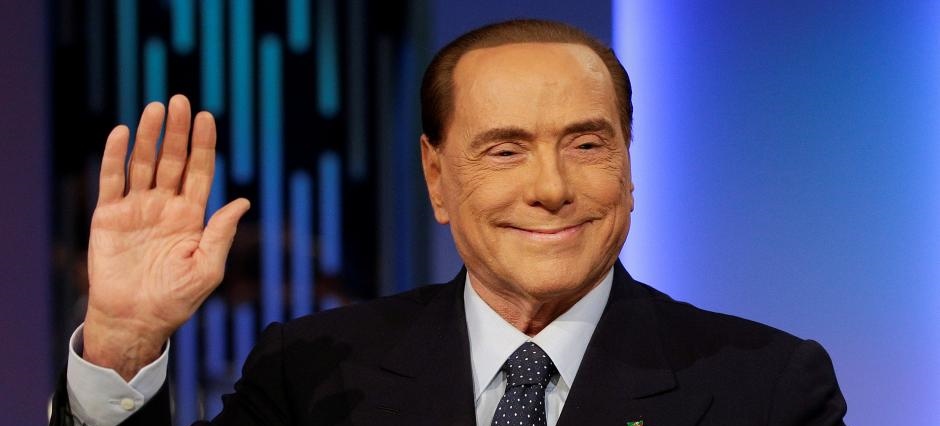Italy goes far right
March 5, 2018 | Expert Insights

Background
Italy is a unitary parliamentary republic in Europe. It is home to 61 million inhabitants. The country is the fourth most populous EU member state. Historically, Italy is perhaps best known for being the origin of the Renaissance. Italian culture flourished at this time, producing famous scholars, artists and polymaths such as Leonardo da Vinci, Galileo, Michelangelo and Machiavelli. It was a period when great strides were made in science and art. It was also during this era when Italian explorers such as Marco Polo, Christopher Columbus, Amerigo Vespucci and Giovanni da Verrazzano discovered new routes to the Far East and the New World.
Present day Italy is known as a vibrant tourist destination in Europe. It is the 3rd-largest national economy in the eurozone, the 8th-largest by nominal GDP in the world. Italy is also the eighth largest exporter in the world. In 2016, its nominal GDP was $1.850 trillion. Italy conducted 59% of its trade with other nations in the European Union.
Politically, Italy has often been plagued by instability in the 20th and the 21st century. After the first world war, the nation was economically weakened. In 1922, the National Fascist Party of Benito Mussolini came to power. This resulted in protectionism and greater control by the government. There have been several dozen governments in the country since the advent of the second world war. The Italian political landscape underwent a seismic shift in the early 1990s when the "mani pulite" ("clean hands") operation exposed corruption at the highest levels of politics and big business. Despite hopes of a change, the old power structures remained largely unchanged. Under the leadership of Silvio Berlusconi, politics was mired by controversies and scandals.

Analysis
The Italian general election was held on March 4th 2018. The elections were called by President Sergio Mattarella on 28 December 2017 after he dissolved the Parliament.
Voters have responded resoundingly to right-wing populism as projections note that far right parties have received majority of the votes. In particular, the anti-establishment Five Star Movement has won the lion's share of the vote. Experts have stated that the elections could result in a hung Parliament.
The Italian elections and the campaigning saw a marked shift towards neo fascism and was built upon anti-immigration wave. It also saw the return of former leader Silvio Berlusconi as a dominant force in national politics. He had earlier stepped down in 2011 amid controversy and even though he cannot be elected to office, he has campaigned hard and has endorsed the far right group the Northern League.
The preliminary results showed Berlusconi’s coalition winning about 37% of the vote. Matteo Salvini the head of the Northern League and Berlusconi reportedly have a “gentleman’s agreement” where the two have decided to choose the next Prime Minister if the coalition were to win.
The ruling centre-left Democratic party has already admitted defeat after coming in third according to projections. “This is a very clear defeat for us,” said minister Maurizio Martina. “We are expecting a result below our expectations ... This is very clearly a negative result for us.” Andrea Marcucci, one of the party’s senators in the outgoing parliament, wrote on his Facebook page: “Voters have spoken very clearly and irrefutably. The populists have won and the Democratic party has lost.”
“The results are still very unclear,” said Giovanni Orsina, a politics professor at Luiss University in Rome. “The odds are still that there is no majority in parliament. But what is clear is that the centre left were punished. Italians didn’t buy the story of Italy getting better. At least the majority of them did not.”
Even though the euroskeptic Five Star Movement (M5S) has more votes, the coalition featuring Berlescuni will have more seats. Italy's financial market performed poorly as early projections were being announced and the FTSE MIB opened 2.2 percent lower on Monday morning.
Kit Juckes, chief global strategist at Societe Generale, said that the Italian election had "produced slightly more uncertainty than expected" with the center-right's success being dominated by Lega Nord's gains. "Pretty much all pundits rule out an alliance between Five-star and Lega Nord, expecting instead a protracted period of coalition-building led by the center-right," he said in a research note.
Assessment
Our assessment is that far-right populism is on the rise in Europe as far right groups in countries like Germany have performed much better than expected in general elections. This is largely to due rise in anti-immigration sentiment across Europe. Italian politics continues to be volatile and combustible and it is likely that the elections will result in a hung Parliament.








Comments